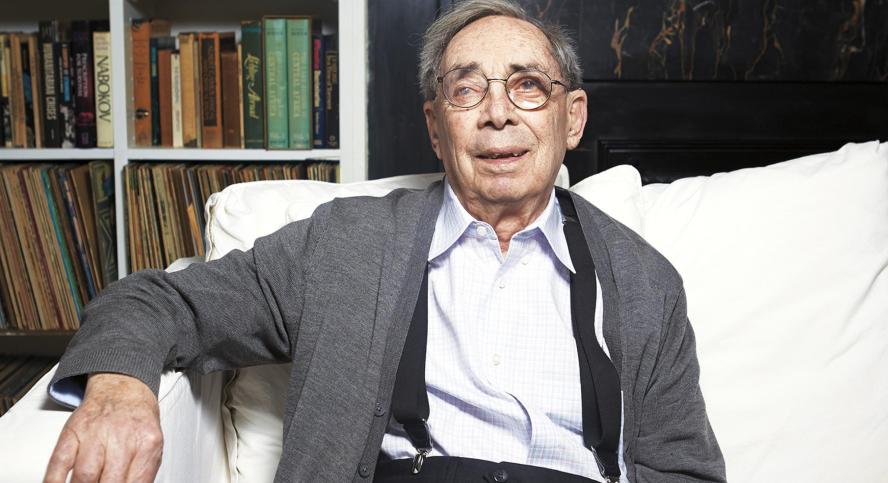-
About
- Departments & Offices
-
Academics
- Physician Assistant
- Special Master’s (MBS)
-
Admissions & Financial Aid
- Tuition & Fees
-
Student Life
-
- Student Resources by Program
- Academic & Student Support
- Wellness & Wellbeing
- Student Experience
- Events & Traditions
-
-
Research
- Research Labs & Centers
-
Local & Global Engagement
- Global Health Programs
- Community Engagement
Remembering Dr. H. Jack Geiger
A pioneering physician-activist who served on the faculty of Tufts University School of Medicine and created a national model for public health with his bold vision for community health clinics.

Tufts School of Medicine is deeply saddened to announce the passing of Dr. H. Jack Geiger on December 28, 2020. A former professor and chair of community medicine at the School of Medicine, Dr. Geiger helped found our nation’s first community health centers, at Columbia Point in Boston in 1965 and in Mound Bayou, Mississippi, in 1967. They were the model for what is now a national network of some twelve hundred community health centers serving more than twenty-eight million low-income and minority patients.
To learn more about how Dr. Geiger created the country’s first community health centers, read the 2018 Tufts Magazine article Leading the Charge or watch this video from the Massachusetts League of Community Health Centers.
Biography
One day when he was a medical student at Western Reserve University in the mid-1950s, H. Jack Geiger stood on the school steps, looked out over the city of Cleveland, Ohio, and had what he later termed “that epiphany.” He realized, he told an interviewer in 2013, “that the question of who got sick, why they got sick, and what happened to them—these were not just biological phenomena, but social, racial, economic, and political phenomena. That was the beginning of my sense that medicine can be an instrument of social change.”
Many pieces of Geiger’s life came together in that moment. Over the next half-century, as a physician-activist, he would work to rectify gross disparities in American health care through his advocacy, determination, and resilience. While on the faculty at the Tufts University School of Medicine, and drawing on the example of community health centers he had studied in South Africa during an eye-opening elective in that country in his fourth year of medical school, he helped found our nation’s first community health centers, at Columbia Point in Boston in 1965 and in Mound Bayou, Mississippi, in 1967. They were the model for what is now a national network of some twelve hundred community health centers serving more than twenty-eight million low-income and minority patients.
Geiger had never fit established patterns very well. Born in 1925 in New York City to a physician father and a microbiologist mother, he graduated from high school at age fourteen, and couldn’t find a college that would take him that young. He was befriended by the great black actor of that period, Canada Lee, and through him met leaders like Paul Robeson, Richard Wright, and Langston Hughes, as he studied the political struggles of minority communities in the United States.
He became a fifteen-year-old freshman at the University of Wisconsin, where he edited the campus newspaper and founded the Madison chapter of the Congress of Racial Equality (CORE). During World War II, he served as a radio-radar officer in the U.S. Merchant Marine, a service he selected because it was the only branch of the military that was not racially segregated. While completing college at the University of Chicago, he ramped up CORE efforts, pressing for full integration of community housing, restaurants, and hospitals. He later worked as a medicine and science reporter for the International News Service before entering medical school in 1954. Geiger’s combination of a fierce devotion to neglected populations and his hard-earned media and political savvy would serve him well in the struggle to establish a new way of thinking about the social determinants of health and illness in the world.
After medical school, he completed his residency at Boston City Hospital and joined the Tufts School of Medicine faculty in 1965. He served as a professor and chair of community medicine until 1971, when he left for SUNY-Stony Brook School of Medicine. He has also been a visiting professor at Harvard Medical School.
Throughout his career, Geiger has been drawn to areas where the issues of civil rights, health, and poverty intersect. He was a founding member and past president of Physicians for Human Rights (PHR), and a founding member and past president of Physicians for Social Responsibility. Each of these organizations later received the Nobel Peace Prize. He was also a founding member and past president of the Committee for Health in South Africa, and a founding member and national program coordinator of the Medical Committee for Human Rights, the medical arm of the civil rights movement in the South. In addition, Geiger has led or participated in human rights missions for PHR, the United Nations, and the American Association for the Advancement of Science to the former Yugoslavia, Iraq, the West Bank and Gaza Strip, and South Africa.
Geiger was a member of the National Academy of Medicine and the 1998 recipient of that organization’s highest honor, its Gustave O. Lienhard Award, “for creating a model of the contemporary American community health center to serve the poor and disadvantaged, and for his contributions to the advancements of minority health.”